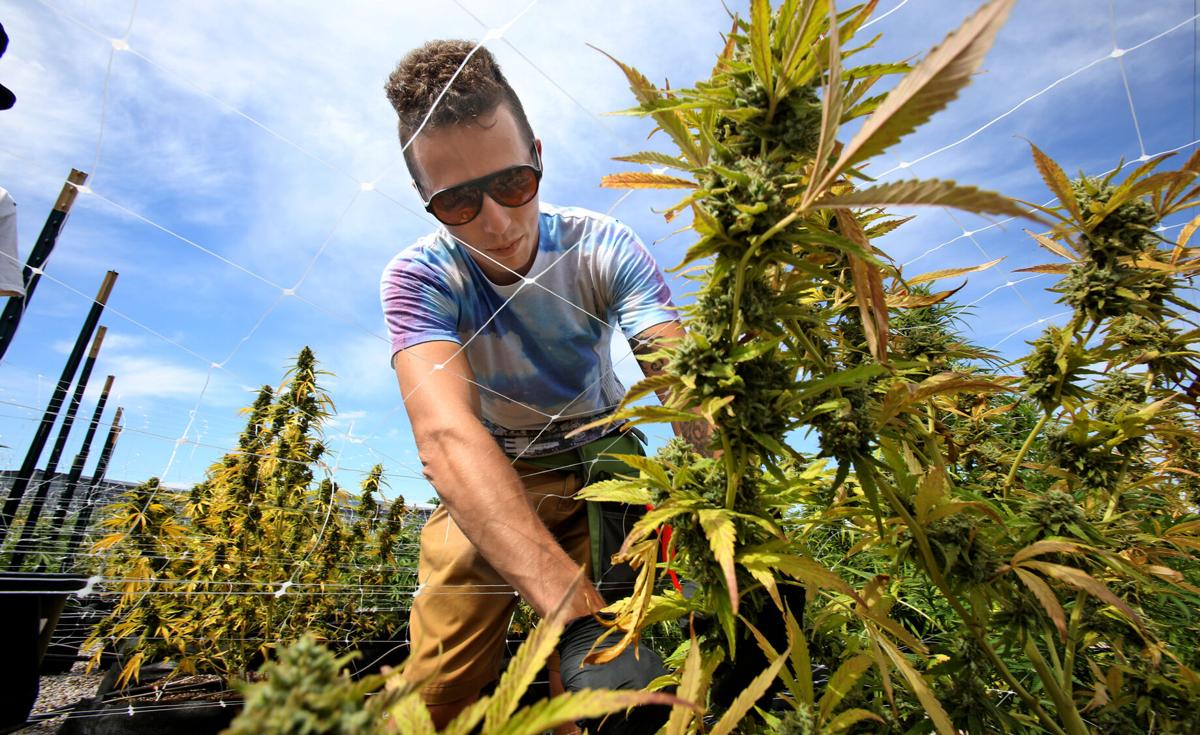The University of Arizona has gone to pot — offering courses in the spring semester that teach skills to work in the legal marijuana industry.
It’s a new direction for a university that once fired an internationally renowned cannabis researcher and still adheres to federal guidelines of prohibition when it comes to marijuana use on campus. The state has both medical and recreational marijuana programs.
Earlier this week the UA announced a partnership between cannabis education company Green Flower and the university’s Continuing and Professional Education to offer the Cannabis Certificate Program, a set of three noncredit certificate courses focusing on separate aspects of the budding legal marijuana industry.
“We are delighted to partner with Green Flower to help learners gain skills necessary to be a professional in the burgeoning cannabis industry,” said Craig Wilson, UA vice provost for online, distance and continuing education.
The three courses, titled the Business of Cannabis, Cannabis Law and Policy, and Cannabis Healthcare and Medicine, will be offered beginning March 7. Each course includes three eight-week classes lasting a total of six months, at a cost of $2,950 per course.
Participants in the inaugural cohort will receive a $500 discount.
Wilson also confirmed the course will be offered exclusively online.
The new program is geared toward imparting cannabis-industry skills and knowledge to a workforce that will oversee a billion-dollar industry in Arizona, said Rebecca Cook, director of continuing and professional education at the UA.
She credited the passage of Proposition 207 last year by Arizona voters as a turning point, both academically and economically, for the addition of the new program.
“The changing laws have created a tremendous need for credible cannabis education, not just for producers and distributors, but also for health professionals, legal professionals, law enforcement and many others,” she said.
Ventura, California, based Green Flower, which bills itself the “industry standard for cannabis education and training,” will provide the curriculum and staff for the courses. Instructors will include industry experts like entrepreneurs, board-certified physicians, attorneys and public policy specialists.
“Green Flower is honored to be working with the University of Arizona,” said Max Simon, the company’s CEO.
Like Cook, Simon emphasized the program’s goal of addressing a growing and changing industry, especially when it comes to new laws and regulations, and he praised the UA for offering a way for potential participants in the industry to start their careers.
“With new rules and licenses beginning to take effect, we applaud the leadership of the university for their foresight in wanting to offer certificate programs designed to prepare people for careers in what is now the fastest growing job market in the country.”
The UA isn’t the first institution of higher education Green Flower has partnered with. The company’s website lists its partnerships, including ones with Syracuse University and the University of Nevada at Reno.
Although the three certificates offered won’t include credited classes for degree-seeking students, the addition of a cannabis-centric program geared toward educating and equipping students with the tools necessary to succeed in an industry that is still technically federally prohibited, is a change for the UA.
In 2014, the university terminated Dr. Sue Sisley, a renowned cannabis researcher. At the time, UA officials chose not to renew her contract. While no official response was given at the time, Sisley had been vocal in campaigning for support from the Legislature for research she intended to do involving veterans with PTSD.
The university, citing marijuana’s federally prohibited status, also still prohibits students, faculty and staffers on campus from possessing or consuming marijuana or other marijuana-based products, even though adults age 21 and older can under state law. That includes medical patients as well.
Sisley’s Phoenix-based lab recently became the first lab in decades to be granted federal permission to grow and prepare medicinal marijuana for research purposes.





